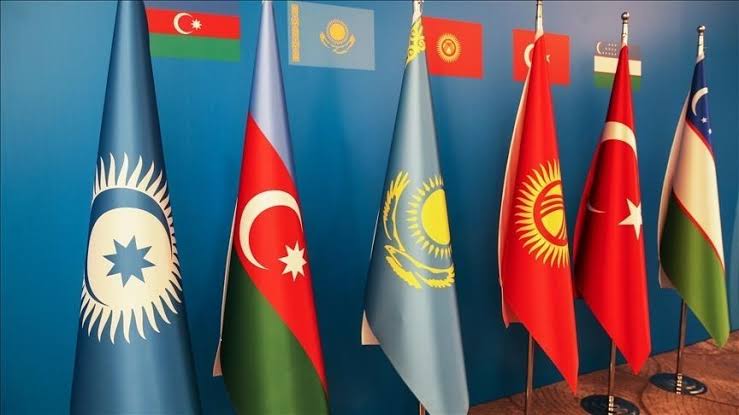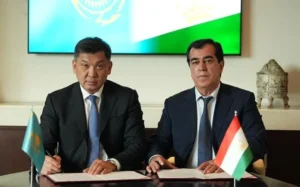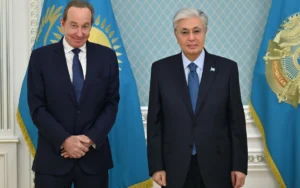Kazakhstan’s Pivotal Role in Turkic Unity

In a follow-up to my previous article on Azerbaijan’s role in shaping the future of the Turkic world in The Gulf Observer, today, I delve into the profound impact of Kazakhstan in the ongoing process of Turkic unification. Since the dissolution of the Soviet Union in 1991, Kazakhstan has emerged as a key player, steering the ideological pursuit of unity among Turkic-speaking peoples and contributing significantly to regional stability, national identity, and the balancing of external influences.
Kazakhstan’s role in Turkic unity manifests in multifaceted dimensions, ranging from the establishment of interparliamentary and intergovernmental structures to fostering educational and cultural exchange platforms. These endeavors, coupled with strategic initiatives in investment and business partnerships, underscore Kazakhstan’s commitment to shaping a cohesive Turkic identity.
At the heart of Turkic cooperation lies the Organization of Turkic States (OTS), formerly known as the Cooperation Council of Turkic Speaking States. Founded in 2009, the OTS brings together five members – Azerbaijan, Kazakhstan, the Kyrgyz Republic, Türkiye, and Uzbekistan (2019) – collectively representing a territory rich in economic opportunities and a population of 260 million. The OTS serves as a pivotal platform for diplomatic dialogue, economic collaboration, and the preservation of cultural ties among its member states.
The historical roots of Turkic-speaking peoples, stretching back to ancient times, have played a pivotal role in bridging the East and West. This historical connection finds resonance in the Great Silk Road, a transcontinental network of trade routes that facilitated cultural exchange and economic cooperation. The echoes of this historical interconnectedness reverberate in the contemporary pursuit of Turkic unity.
In the late 19th and early 20th centuries, Turkic-speaking peoples initiated a pan-Turkic political movement in response to the decline of the Ottoman Empire and the ascent of European nationalist movements. After Soviet Union’s collapse, Türkiye assumed a leadership role in recognizing the independence of Central Asian states. Kazakhstan emerged as a focal point for Türkiye due to its expansive territory, abundant resources, and significant transit potential.
Initiatives Promoting Turkic Unity
Kazakhstan’s proactive approach to promoting Turkic unity is exemplified by key initiatives. The creation of the Organization of Turkic Culture (TURKSOY) in the early 1990s aimed at fostering cultural exchange. The establishment of the Turkic Academy in 2012 served as a crucial step in reclaiming historical details erased during the Soviet regime. The recent proposal for the Turkic Investment Fund (TIF) reflects Kazakhstan’s commitment to mobilizing economic potential and attracting investments.
The 10th-anniversary summit of the OTS, held last year, underscored the collective responsibility of Turkic states in addressing global challenges. Kazakhstan, set to assume the chairmanship of the OTS in 2024, introduced a comprehensive agenda (TURKTIME) focusing on traditions, unification, reforms, knowledge, trust, investment, mediation, and energy. This ambitious agenda reflects Kazakhstan’s commitment to steering the course of Turkic cooperation.
Cultural and educational exchanges form the bedrock of the close cooperation between Kazakhstan and Türkiye. Projects such as the Khoja Akhmet Yassawi International Kazakh-Turkish University and Suleyman Demirel University have strengthened people-to-people contacts. Cultural ties, visa-free regimes, and collaborative projects have made Türkiye a favored tourist destination for Kazakh citizens.
In the realm of infrastructure, both Kazakhstan and Türkiye prioritize the development of the Trans-Caspian International Transport Route (TITR), connecting Europe and Asia. This strategic corridor, supported by stable relations between Kazakhstan and Azerbaijan, presents significant opportunities for economic growth and geopolitical influence.
Looking Ahead: Economic Potential, Transport Connectivity, and Military Collaboration
As Kazakhstan looks optimistically towards the future of Turkic cooperation, economic potential, transport connectivity, and military collaboration emerge as critical elements for modern pan-Turkism. The shared history, cultural roots, and linguistic similarities among Turkic nations provide a solid foundation for navigating the challenges of the global political landscape, emphasizing a common journey towards a new dimension in Turkic unity.
So in conclusion, Kazakhstan’s multifaceted contributions and proactive engagements position it as a linchpin in the evolving narrative of Turkic unity, fostering a collective identity that transcends borders and stands resilient against the complexities of our contemporary world.


